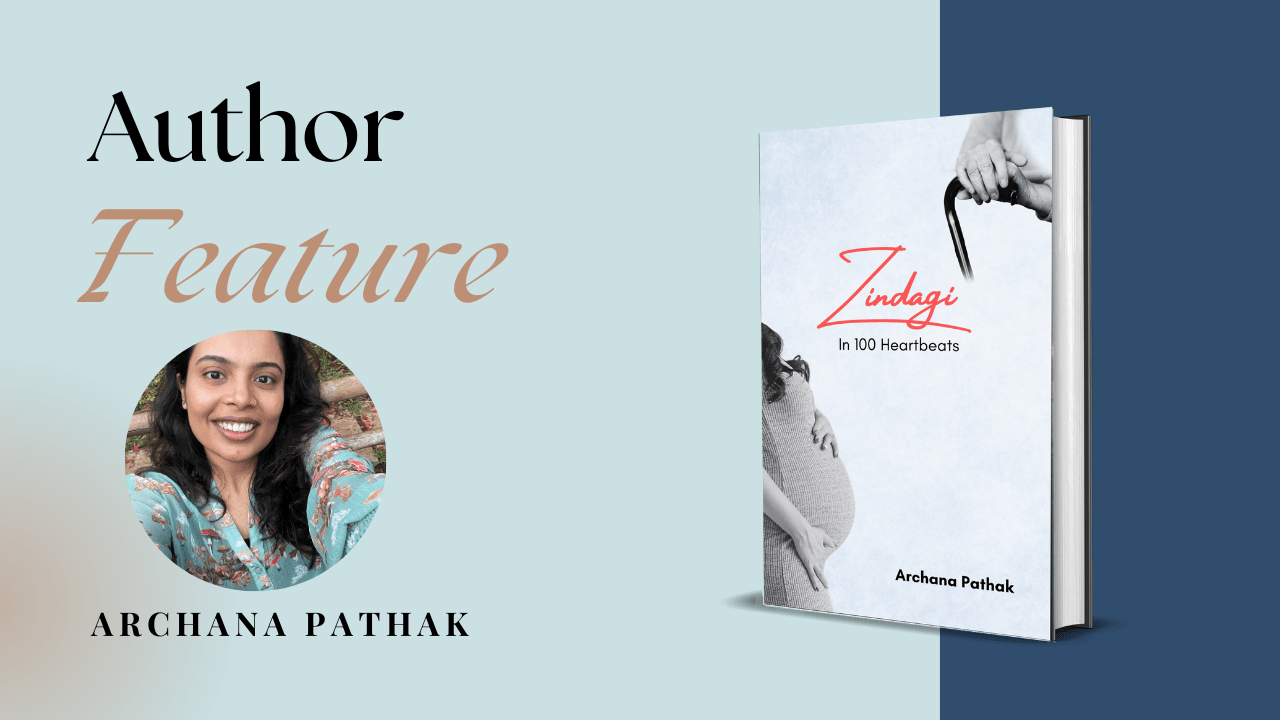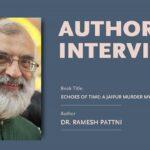
Title: ZINDAGI: In 100 Heartbeats
Author: Archana Pathak
ISBN: 978-93-7335-511-5
Publisher: Evincepub Publishing
About the author:
Archana Pathak is a passionate storyteller, poet, and researcher whose words bridge the gap between the scientific and the soulful. Currently pursuing a PhD in Microbiology, she balances the precision of science with the emotional depth of literature, weaving verses that speak straight to the heart.
Born in Delhi and now residing in Gujarat, Archana has been in love with words since childhood. What began as scribbles in a notebook grew into a lifelong dream to become an author. That dream has already taken shape in two published books: her debut novel Is It Too Late?, and her poetry anthology ‘Vaani’ – The Unbaked Rhymes. Her work often draws inspiration from real-life experiences, social issues, and the resilience of women, making her poetry both relatable and thought-provoking.
Over the years, Archana has penned numerous poems exploring a wide spectrum of themes, from the quiet beauty of everyday moments to the struggles and triumphs of human life. ‘Zindagi’ – In 100 Heartbeats marks her third book, a deeply personal and universal collection that traces the emotional journey from birth to the final goodbye.
Through her writing, Archana seeks not only to tell stories but also to ignite conversations, inspire change, and offer comfort. Whether she is in the lab or at her writing desk, she believes in the power of words to heal, connect, and endure much like life itself, one heartbeat at a time.
Q1: What inspired you to write Zindagi?
Answer: Life itself inspired me. As a research scholar, I spend my days with science, but writing has always been my way of feeling and expressing. Zindagi was born from small observations of people, relationships, struggles, and joys. I wanted to capture the entire journey of life in words, from the first heartbeat to the last goodbye.
Q2: Is the book based on personal experiences, observations, or imagination?
Answer: It’s a mix of all three. Some poems are directly inspired by my own life, some from people I’ve met or stories I’ve heard, and some from pure imagination. Together, they create a reflection of life we all share in different ways.
Q3: How does poetry help you express thoughts about life differently than prose?
Answer: Poetry gives me the freedom to say big emotions in just a few lines. Prose explains, but poetry touches the heart directly. It allows pauses, silences, and feelings to flow naturally- sometimes what I cannot say in pages of prose, I can say in four lines of poetry.
Q4: What role has your own journey played in shaping the themes of this collection?
Answer: My journey has shaped almost every page of this book. From being a student of science to pursuing literature, and from facing personal struggles to celebrating small joys, my path has taught me to look at life in layers. Those layers of strength, uncertainty, and gratitude naturally wove themselves into these poems.
Q5: Who are the poets or writers that influenced your style of writing?
Answer: I’ve been influenced by many Indian voices. Durjoy Dutta’s simple yet emotional storytelling, and Amish Tripathi’s way of blending mythology with modern thought, have inspired me. Among poets, I admire contemporary Indian writers like Rupi Kaur and Nikita Gill for their honesty and brevity. These writers showed me that simplicity can be powerful.
Q6: The title Zindagi is universal yet deeply personal. Why did you choose it?
Answer: Because life—Zindagi—is the one thread that connects us all. No matter where we come from, what language we speak, or what paths we walk, we all live through similar emotions. Choosing Zindagi was my way of honoring that shared human experience while also telling my own story within it.
Q7: What central message about life does your poetry aim to convey?
Answer: That life is imperfect, but it’s still beautiful. We should live it fully—accepting both joy and sorrow. My poems try to remind readers that every stage, every emotion has meaning.
Q8: How do you balance themes of joy, struggle, and hope in your verses?
Answer: By writing honestly. I don’t try to hide the struggles, but I also make sure there’s always a light of hope in every poem. Life is never only pain or only joy, it’s always a mix, and that balance comes naturally in my writing.
Q9: Are there recurring symbols or motifs in your poems that readers should notice?
Answer: Yes, I often use nature- rain, wind, sky, seasons as symbols of emotions. Another recurring motif is the heartbeat, because it represents continuity, rhythm, and the preciousness of life.
Q10: Which poem in this collection is closest to your heart, and why?
Answer: It’s difficult to choose, but “The First Cry” is the closest to my heart. It captures the miracle of birth, the moment life begins. For me, it symbolizes the purity of life’s journey, the way everything starts with a cry, with hope, with love. It sets the tone for the whole anthology.

